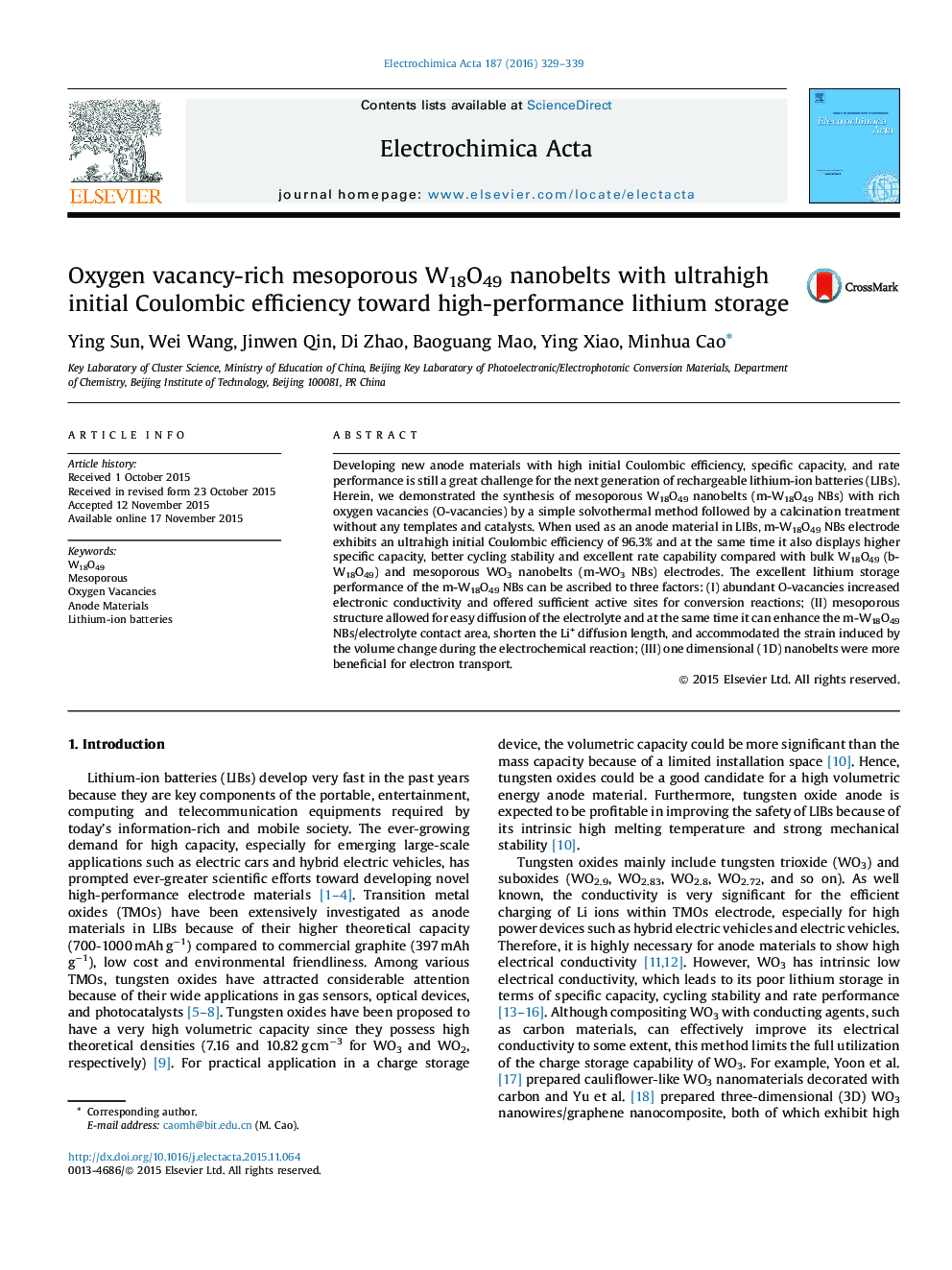| کد مقاله | کد نشریه | سال انتشار | مقاله انگلیسی | نسخه تمام متن |
|---|---|---|---|---|
| 183276 | 459543 | 2016 | 11 صفحه PDF | دانلود رایگان |

ABSTRACTDeveloping new anode materials with high initial Coulombic efficiency, specific capacity, and rate performance is still a great challenge for the next generation of rechargeable lithium-ion batteries (LIBs). Herein, we demonstrated the synthesis of mesoporous W18O49 nanobelts (m-W18O49 NBs) with rich oxygen vacancies (O-vacancies) by a simple solvothermal method followed by a calcination treatment without any templates and catalysts. When used as an anode material in LIBs, m-W18O49 NBs electrode exhibits an ultrahigh initial Coulombic efficiency of 96.3% and at the same time it also displays higher specific capacity, better cycling stability and excellent rate capability compared with bulk W18O49 (b-W18O49) and mesoporous WO3 nanobelts (m-WO3 NBs) electrodes. The excellent lithium storage performance of the m-W18O49 NBs can be ascribed to three factors: (I) abundant O-vacancies increased electronic conductivity and offered sufficient active sites for conversion reactions; (II) mesoporous structure allowed for easy diffusion of the electrolyte and at the same time it can enhance the m-W18O49 NBs/electrolyte contact area, shorten the Li+ diffusion length, and accommodated the strain induced by the volume change during the electrochemical reaction; (III) one dimensional (1D) nanobelts were more beneficial for electron transport.
Journal: Electrochimica Acta - Volume 187, 1 January 2016, Pages 329–339